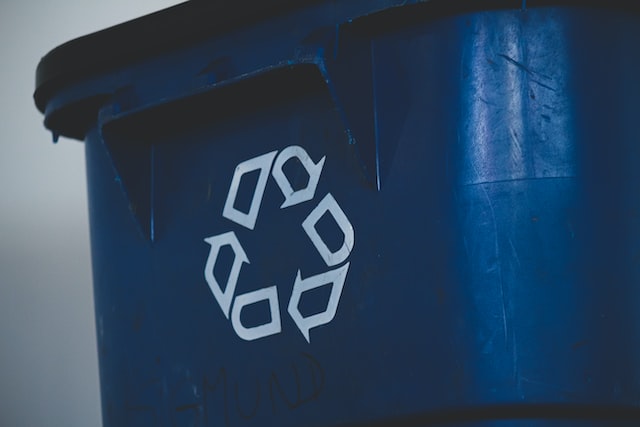Nowadays, there is growing concern about conserving resources through many different initiatives, including aluminium can recycling. As the global population grows (currently, we are at about 8 billion people worldwide and around 71 million in Thailand), people are realizing that the planet’s resources are finite, and therefore more prudent methods must be used to ensure everyone has sufficient access to food, water, and shelter.
Often, you will see campaigns to “reduce, reuse, and recycle”. Here, we will discuss the last point, recycling, specifically, aluminium can recycling, as Thai Beverage Can Ltd is at the forefront of recycling aluminium in an effort to help save the planet’s resources.
What is recycling?
Unlike reducing or reusing, which focus on using a product less (reducing) or using product as often as possible (reusing), recycling is about transforming something that may seem worthless into something of value. So, rather than throwing something away to the trash, an item can be broken down and reformed into something useful again.
This is not a new concept, as people have been reducing, reusing, and recycling for generations. However, with new technologies and innovations, it became cheaper to manufacture new products, so people became accustomed to single-use items. They found it easier to throw away, for example, a plastic water bottle and buying a new one or to get rid of old appliances for a newer model.
But now, the trend is turning back to recycling as people are becoming more aware of the damage that constantly using up resources is doing to their environment and lifestyles. Now, they are seeing the value in taking items that were once considered garbage and converting them into new resources and products.
What are the benefits of recycling?
There are many benefits to be gained from recycling. First and foremost, recycling helps reduce the amount of waste that needs to be stored. Generally, waste is relegated to landfills, which at the very least become eyesores (and nose-sores from the smell) for the nearby communities. In Thailand alone, there are over 3,000 landfill sites. This does not include illegal dumping grounds, which cause their own issues. From these landfills, hazardous chemicals can leach into the soil and water table, ruining local ecosystems and farmlands.
Furthermore, recycling can ease the pressure on limited resources. For example, with aluminium can recycling, there is no need to mine for bauxite, which is crushed and heated to create aluminium. Natural lands can remain pristine without the mines, and the risk of polluting the air and nearby water sources is greatly reduced.
Recycling also has other benefits, including saving money and raising revenue. Recycling efforts can be more cost-effective than producing new products, and in many countries, including Thailand, people can supplement their incomes by collecting recyclable materials and selling them to facilities. As of 1 March 2023, a kilogram of aluminium cans is worth about 46 baht.
What are the benefits of recycling aluminium cans?
In addition to the revenue mentioned above, aluminium can recycling is a particularly effective way of maintaining sustainable practices to save on resources. Even before discussing its recyclability, aluminium already has many benefits over other materials. It is extremely durable and lightweight, so that when comparing strength to weight, aluminium comes in at 65% lighter than its equivalent in steel. And unlike products made of iron or steel, it does not rust. And while it can corrode, this process can create a protective layer of aluminium oxide.
Returning to recycling, aluminium is a uniquely advantageous material, as it is almost 100% recyclable, with little degradation or loss. That means that an aluminium soda can could be recycled into a brand-new can of almost exactly the same size. By some estimates, nearly 75% of aluminium produced throughout time is still in use today. In Thailand, the recycling rate for aluminium cans is over 90%.
How are aluminium cans recycled?
Through various techniques, from hand sorting to high-tech machinery, aluminium cans are separated and sorted based on their alloy composition and quality. Contaminants are cleaned off, and then the aluminium “waste” heads to a furnace, where it is hit with almost 300 degrees Celsius of heat, which liquefies the metal. It can be kept in its liquid state, or it can be poured into molds to make ingots or cast into billets. From there, the aluminium can be rolled out into sheets or formed into whatever is needed. So a soda can could become another soda can or a smartphone case.
What is closed-loop recycling?
For many other materials, they are processed through open-loop recycling. This means that the item recycled is not fully used or is transformed into something that, in turn, cannot be recycled. For example, many plastic soda bottles can be recycled into synthetic textiles to make carpets or coat padding. However, that carpet or coat cannot be recycled in the same way.
Aluminium, on the other hand, can be part of closed-loop recycling. Closed loop because, as mentioned above, almost all of the aluminium used can be recycled back to aluminium. Not only is there little to no waste of the aluminium, but the aluminium stays aluminium, and it can be turned into aluminium again after multiple uses. This is why many advocate using aluminium over plastics wherever possible, since aluminium can be recycled potentially endlessly.
Thai Beverage Can is at the forefront of aluminium can recycling
Thai Beverage Can Ltd (TBC) produces a variety of metal containers for beverages, foodstuffs, and other products. The company is fully committed to sustainable practices and, to that end, has implemented a circular economy strategy to its operations. In 2020, TBC, along with other industry suppliers and partners, signed a memorandum of understanding with the Ministry of Natural Resources and Environment to promote and facilitate aluminium can recycling in a truly closed-loop process. Along with integrating recycling in its business practices, TBC also contributes to the Aluminium Loop initiative, which encourages recycling among consumers and communities, with various campaigns and by setting up and maintaining collection points across the country.



